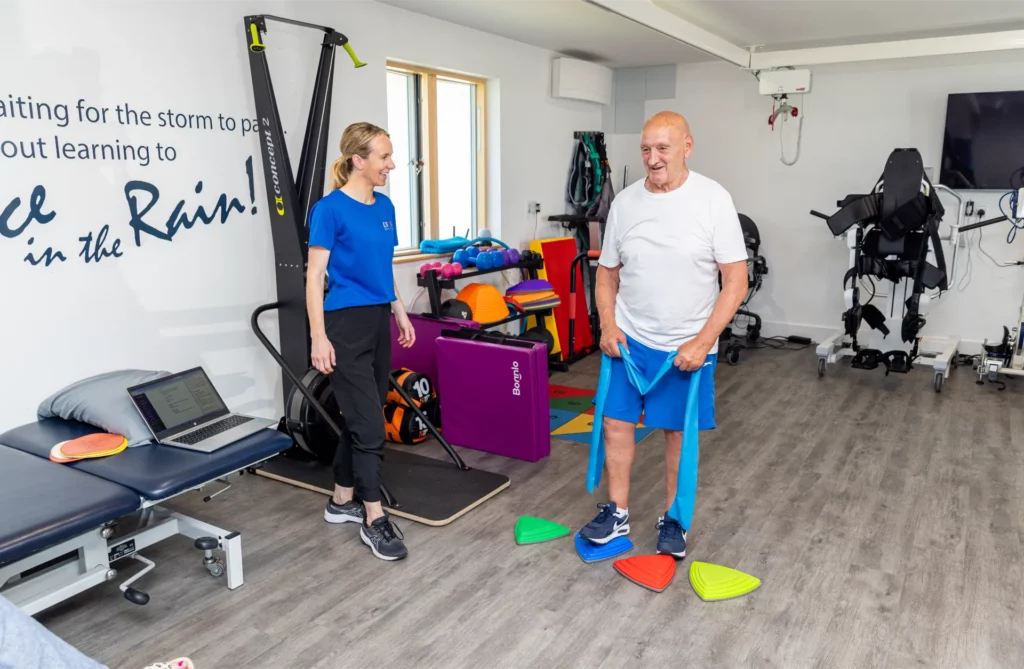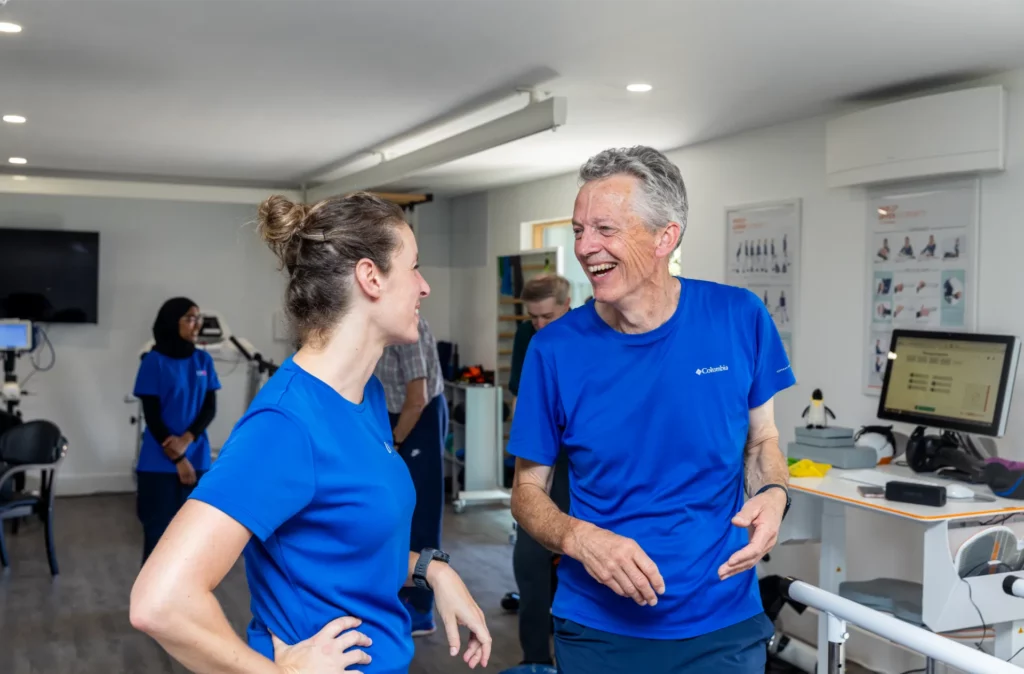
Personal Training
“Movement is a medicine for creating change in a person’s physical, emotional and mental states”
This quote is just as true for those with a neurological condition as it is for those without. Exercise has been shown to be effective in decreasing the progression of neurological conditions such as Multiple Sclerosis, Parkinson’s Disease and injuries to the central nervous system (such as Stroke and Spinal Cord Injury).
Exercise is a term used for any physical activity that is planned, structured and repetitive for the purpose of conditioning any part of the body. It can involve a mixture of:
- Strength/resistance
- Balance
- Cardio-vascular (i.e. walking, cycling (arm/leg), swimming, wheelchair based)
- Coordination

Exercise promotes the release of a chemical in the brain called BDNF (brain derived neurotrophic factor). BDNF plays an important role in promoting changes within the brain (neuroplasticity) by increasing cell production, protecting the brain cells (neuroprotection), improving learning and cognition. Exercise also plays a vital role in helping to protect against other conditions such as cancer, heart disease, type 2 diabetes, osteoarthritis and osteoporosis.
As well as creating a programme specific to each individual’s needs, at LV Rehabilitation we aim to help support individuals in accessing or starting a form of exercise or physical activity that they enjoy and want to undertake.
Specialist programmes that we offer:
PD Warrior
A programme specifically for those newly diagnosed or in the early stages of living with Parkinson’s. For more information on PD Warrior click here.
APEx Training
Case example
Hear what our patients are saying about us
Frequently asked questions about our treatments
Can you manage individuals who cannot walk or stand?
What is the benefit of coming to the clinic?
We have a lovely spacious gym area with a wide range of therapy, exercise equipment and rehabilitation technology to support each clients needs. This allows us to offer a wide range of treatment approaches. However, we are aware that for some activities it is key to get out and about into the community or undertake sessions at home.
How much treatment do I need?
How do I access group sessions?
Check out our group exercise page which explains what each group focuses on and who it is aimed at. Some of our groups only require a short assessment whilst others require more input prior to attendance. Our aim is to make groups accessible to as many as possible and everybody can access their first session free of charge.